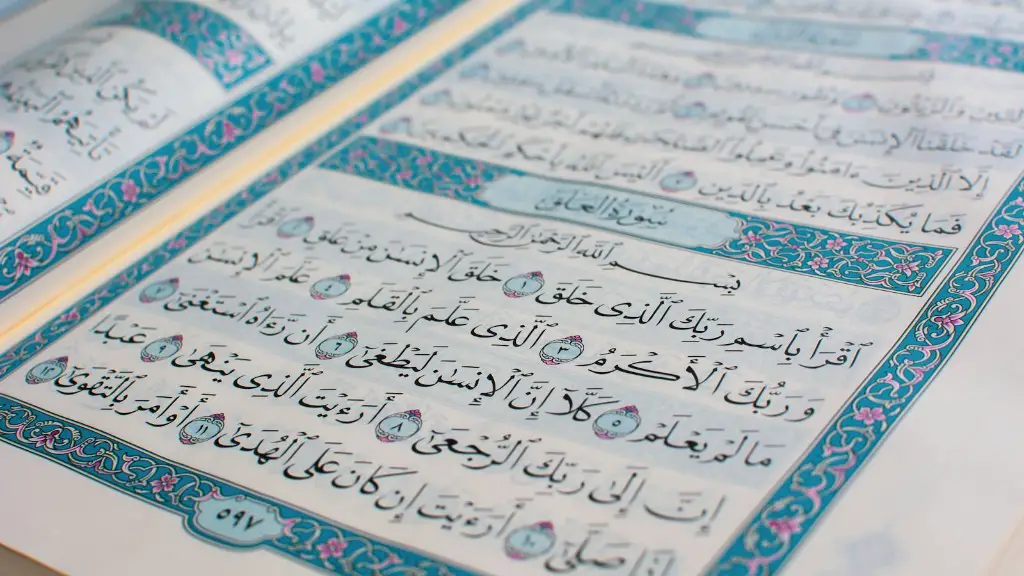Islam is the second largest religion in the world with over 1.6 billion followers. It is a monotheistic faith based on revelations received by the Prophet Muhammad in the 7th century. Muslims believe in one God, Allah, and the Prophet Muhammad is his final messenger. The holy book of Islam is the Quran. Muslims are required to pray five times a day – at dawn, noon, afternoon, sunset, and evening. They must also fast during the month of Ramadan. Almsgiving and pilgrimage to Mecca are also important pillars of Islam.
Islam has impacted the world in a number of ways. It is one of the largest religions in the world, with over 1.6 billion followers. It has also played a significant role in the political and cultural history of many countries.
What has Islam contributed to the world?
It is often said that the European Renaissance would not have happened in the way that it did if Muslim scholars had not translated classic Greek texts. This is because Muslims made major advancements in astronomy, zoology, geography, arithmetic, navigation, art, architecture, and technology. Without the knowledge and expertise of Muslim scholars, the European Renaissance would have been delayed or may not have happened at all.
Islam is founded on the idea of individual and collective morality and responsibility. This means that individuals have a responsibility to themselves and to their community. The Qur’an expresses this idea of collective morality in terms of equality, justice, fairness, brotherhood, mercy, compassion, solidarity, and freedom of choice. Islam introduced a social revolution in the context in which it was first revealed. This revolution was based on the idea that individuals have a responsibility to themselves and to their community. The Qur’an expresses this idea of collective morality in terms of equality, justice, fairness, brotherhood, mercy, compassion, solidarity, and freedom of choice.
How the spread of Islam impacted the world
During the Golden Age of Islam, Muslim rulers started the first university, made advances in science and math, and continued the learning of Greek and Roman societies while Europe was in the “Dark Ages.” Islamic civilization produced important scientists, astronomers, mathematicians, doctors, and philosophers during this time.
The coming of Islam to Sub-Saharan Africa facilitated the rise of political empires, encouraged trade and wealth, and increased the traffic in slavery. In its pure form, Islam was more attractive to kings because of its concept of the caliph combined political power with religious authority. However, the rise of Islam also had a dark side, as it increased the traffic in slaves, which had a devastating effect on the African continent.
What are 3 contributions of the Islamic empire?
The Abbasid Caliphate was a period of great advancement for the Islamic Empire. In many fields, including literature, philosophy, science, medicine, mathematics, and art, the empire made great strides. This period is known as the Islamic Golden Age, and it lasted from 790 to 1258.
The word “youm” can be used to mean either a literal day or a longer period of time. In this context, it is most likely referring to a longer period of time. The Qur’an is not saying that Allah created everything in six literal days.
There are several other verses in the Qur’an that support this interpretation. For example, the Qur’an states that Allah created the universe in an instant (54:49). This is not possible if the universe was created in six literal days.
The Qur’an is not necessarily contradicting the Bible on this point. It is possible to interpret the Bible verses about the six days of creation as referring to longer periods of time as well.
What is the importance of Islam in our life?
Followers of Islam believe that Allah is the all-powerful and all-knowing creator of the universe. They aim to live their lives in complete submission to Him, and believe that nothing can happen without His permission. However, they also believe that humans have free will, and that it is up to us to use our free will to choose whether to follow His guidance or not. Islam teaches that the word of Allah was revealed to the Prophet Muhammad through the angel Gabriel.
Nomani and Rahnema’s view on Islam and markets is that Islam sees markets as the preferable way of coordinating the economy. This is due to the fact that competition in markets allows for consumers to get the desired goods they want and for producers to sell their goods at a price that is acceptable to both parties.
What is the most important value of Islam
The “basic aim” of Islamic morality and ethics is “to achieve” Raza-e Ilahi (the Pleasure of God) or to make God’s pleasure “the objective of man’s life.” The importance of moral behavior in achieving this goal is reflected in the five Quranic verses calling on Muslims to enjoin what is right and forbid what is wrong, as well as in hadith.
It is often said that the Arab world has not undergone the same kind of social and political changes as the West. However, a number of historians have noted that there have been significant changes in Arab society, particularly in the areas of social security, family structure, slavery and the rights of women. These changes have undoubtedly improved the lives of many people in the Arab world and represent an important step forward for the region.
What impact did Islam have on Europe?
During the High Middle Ages, the Islamic world was at its cultural peak, supplying information and ideas to Europe, via Al-Andalus, Sicily and the Crusader kingdoms in the Levant. These included Latin translations of the Greek Classics and of Arabic texts in astronomy, mathematics, science, and medicine.
Islam has always been a strong advocate for the rights of women. In fact, Islam gives women a number of rights, some of which were not enjoyed by Western women until the 19th century. For example, until 1882, the property of women in England was given to their husbands when they married, but Muslim women always retained their own assets. Islam recognizes the importance of women in society and is working to ensure that their rights are respected and protected.
What were the 2 most important ways that Islam spread
Islam is a religion that was founded in the 7th century in Arabia. The name “Islam” comes from the Arabic word “salam,” which means “peace” or “submission.” Islam spread through military conquest, trade, pilgrimage, and missionaries. Arab Muslim forces conquered vast territories and built imperial structures over time. Through trade, Islam spread to East Africa, Southeast Asia, and the Horn of Africa. Pilgrims traveling to Mecca for the annual hajj also helped to spread the faith. And finally, missionaries were sent to convert people to Islam in different parts of the world.
Islamic mathematicians such as Al-Khwarizmi, Avicenna and Jamshīd al-Kāshī made advances in algebra, trigonometry, geometry and Arabic numerals. Their work influenced Western mathematics, particularly through the translation of their texts into Latin by European scholars.
Islamic doctors described diseases like smallpox and measles, and challenged classical Greek medical theory. Their work was also influential in the West, particularly through the translation of texts into Latin.
How did Islam contribute to medicine?
Arab physicians and scholars were responsible for developing various techniques that are still used today, such as distillation, crystallisation, and the use of alcohol as an antiseptic. They also laid the foundation for medical practice in Europe. Before the Islamic era, medical care was largely provided by priests in sanatoriums and annexes to temples.
These ahadith show that Islam has a specific lifespan on earth, and that this lifespan is coming to an end. We are now in the year 1441, and according to these ahadith, Islam will come to an end in the year 1500. This means that we have less than 60 years left until the end of Islam. We should use this time wisely and make sure that we are doing everything we can to spread the message of Islam and to live our lives in accordance with its teachings.
Warp Up
Islam has impacted the world in a number of ways. One way is that it has played a role in the spread of education and literacy. Another way is that it has helped to shape the law and governance of many countries. Finally, it has also helped to create a sense of community and solidarity among Muslims around the world.
Islam is one of the largest religions in the world with over 1.5 billion followers. It is the second largest religion in the world after Christianity. Islam has impacted the world in many ways. It has impacted the economy, education, culture, and politics of many countries.


